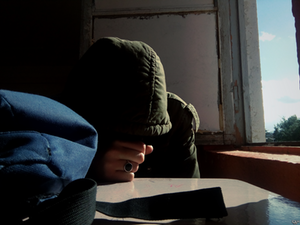Dear Strong Friend
In life, there are always many opportunities for us to put into play and practice what we’ve once or twelve times preached to others. You know… that ever so helpful advice that we pass out for free, but never take the time to follow. I’ve had these experiences before, but this time more than ever, I have had to practice what I’ve preached. This time, I really haven’t had the choice to do otherwise.
See, ten days before Thanksgiving, my daddy passed away. Any parental loss… loss period, hurts and I’m a daddy’s girl.
It shattered me.
His passing was also nine days before my birthday and I just wanted to cancel the entire day (I know, it sounds like a kindergarten request) because it was the first without him.
It became necessary for me to sit back and rest my own mind; it’d been going nonstop. I have had to be honest with myself and others about how I’m “really” doing… something I rarely ever do. It is a terribly strong habit of mine to say that I’m doing okay; an auto-response, I guess. I have had to allow others to carry the weight that I once bore so easily. Things that came so naturally, I’m now learning to take my time and ask for backup when I feel like I just can’t.
Take time to grieve.
 It’s what they keep telling me, and I have needed to hear it because I didn’t really know what that meant. I’d gotten so used to rushing my way through tough times by working harder and focusing on tasks, but that wasn’t cutting it for me this time. There will come a time in your life, if there hasn’t already, when you must be okay with taking your own, sound advice. This has always been the hardest for me because I have grown accustomed to being the general “go to” strong friend for everyone else. Now, I have had to “go to” those that I trust. The same goes for you – let those who you trust help you.
It’s what they keep telling me, and I have needed to hear it because I didn’t really know what that meant. I’d gotten so used to rushing my way through tough times by working harder and focusing on tasks, but that wasn’t cutting it for me this time. There will come a time in your life, if there hasn’t already, when you must be okay with taking your own, sound advice. This has always been the hardest for me because I have grown accustomed to being the general “go to” strong friend for everyone else. Now, I have had to “go to” those that I trust. The same goes for you – let those who you trust help you.
So, What’s the Play Call?
It’s tough being the “strong friend”, and not necessarily for the obvious reasons that others may think. Sometimes, it’s tough because you simply don’t know how to handle help when you are the one in need. I had to learn to fully accept that most people don’t check on the strong friend, and I’m good with that. What I had not learned is how to allow myself to be the friend that needed support, hugs, texts, and phone calls. Here are a few things to keep in mind when your pain causes the tables to turn:
- It’s okay not to be okay. One of my amazing friends continues to remind me of this because I always expect myself to be “alright” and “okay” for everyone else’s sake. This time, think of your well-being and be okay with not being okay. “God is our refuge and strength, a very present help in trouble.” Psalms 46:1
- Be honest about your pain. It is important that you be honest with them and with you. The easiest response will always be “I’m doing alright” or “I’m good”, but I have challenged myself to, in a way, let others know that I am not alright. Often, not admitting that we’re hurting causes us to take on loads that we aren’t quite capable of handling. “And ye shall know the truth, and the truth shall make you free.” John 8:32
- Let them help you! My mom always tells me that I can block other’s blessings by not allowing them to help me when they feel led to. And no, it’s not as easy as it sounds, but it’s necessary. I have had to make myself accept gifts, extra hugs, and offers to be there for me… because I need them. I have received journals, flowers, and cards that are currently helping me cope because I see and feel the love behind them. I hate to break it to you my dear, but you can’t always be the “strong one”. “We then that are strong are to bear the infirmities of the weak, and not to please ourselves.” Romans 15:1
- It’s alright to cry. Some folks will tell you (especially for men) that crying is a sign of weakness. Not true! I’ve seen my daddy cry, and if he did it, then it’s acceptable (laugh a little). Anyhoo… I would like to think, in cases such as these, that crying is my body extracting part of what is hurting me. Whether it be fear, anxiety, sadness, the list goes on. Stop holding it in and let God heal you. “The righteous cry, and the Lord heareth, and delivereth them out of all their troubles.” Psalms 34:17
- One moment at a time. Sometimes, that “one day at a time” theory is a stretch and you can’t seem to think that far ahead. Don’t beat yourself up because your doses are minimal right now. As I am constantly reminded, “do what you can”. And right now, more than a moment’s worth is too much. “So don’t worry about tomorrow, for tomorrow will bring its own worries. Today’s trouble is enough for today.” Matthew 6:34 (NLT)
Healing is a process. I am praying that you do not choose to skip any steps, for they are all necessary.




